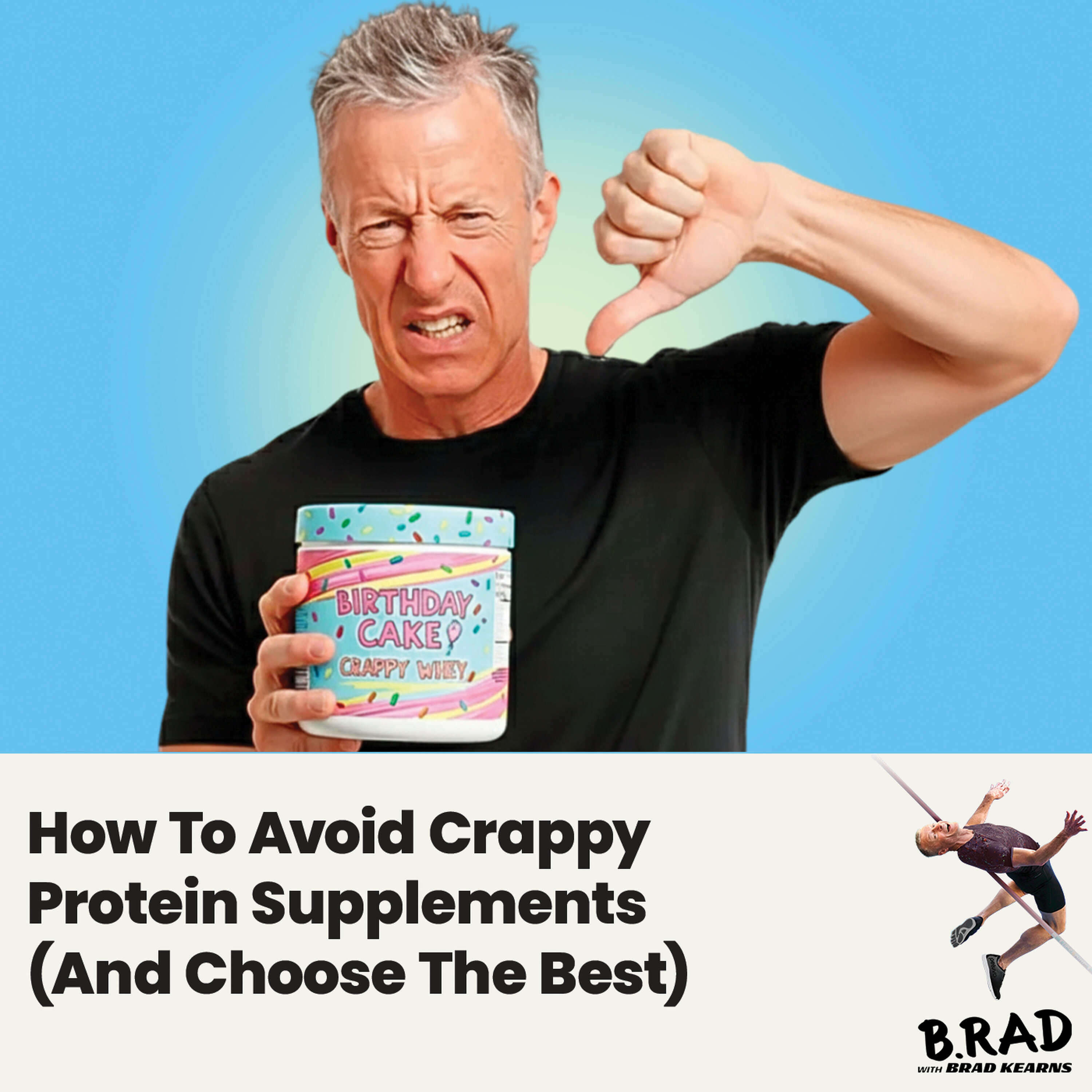Podcast Episode Details
Back to Podcast Episodes
How To Avoid Crappy Protein Supplements (And Choose The Best)
In this episode, I dive deep into protein supplements—how to avoid crappy products loaded with questionable ingredients, and how to read labels like a pro.
We break down how whey protein is made, why it’s the most potent and bioavailable protein powder, and why it’s far superior to plant-based sources. I also tackle the myths around protein timing and protein bars: you don’t need protein on the go—the goal is adequate protein intake averaged over time, about one gram per pound of ideal body weight. Protein is the foundation for muscle, organ health, and overall performance, while carbs and fats serve mainly as energy.
I compare B.rad Whey Protein Isolate + Creatine Superfuel to a competitor product loaded with processed additives, artificial sweeteners, and flavor chemicals. I explain the difference between whey protein concentrate, isolate, milk protein isolate, casein, and egg white protein—covering digestibility, nutrient density, and potential digestive issues. We also discuss why a few grams of natural sugar in protein is better than chemically intense sweeteners for performance and recovery.
Finally, I share my approach to sourcing animal-based proteins—pasture-raised eggs, ground beef, and affordable grass-fed steaks—and why combining these with a clean, high-quality whey protein powder gives you the building blocks for health, muscle, and longevity.
If you want to navigate the supplement world safely, skip the junk, and prioritize truly effective protein, this episode is for you.
TIMESTAMPS:
We are looking at the good and bad of supplementation. [01:10]
We don't need protein on the go. We need to average an adequate amount of protein intake over the long term. [02:18]
Over the years, we have learned that one gram of protein per pound of ideal body weight is recommended. [05:20]
When you think about the protein bars that are on the market, realize that there is a large amount of processing involved in making them. [09:50]
Learn to read labels and know what they mean. [15:22]
Sunflower lecithin is a natural fat used as an emulsifier in protein powders. [16:25]
Compare other protein powders that have been processed. [17:18]
What is whey and how is it made? [19:34]
The term milk protein isolate lets you know you can consume it even if you have lactose problems. It depends on how lactose intolerant you are. [33:04]
The egg yolk is one of the most nutritious sources of energy on the planet. [35:03]
There is no reason to consume a product loaded with chemicals when you can get some product using natural ingredients. [39:35]
A small amount of sugar is burned in the cell for energy during your active life. [40:36]
Commodity dark chocolate that you find in popular brands doesn't compare in quality with the high-quality artisan bean to bar chocolate. [46:40]
Wine is the only product in the United States that is not required to put all the added ingredients on the label. [49:11]
If you're gonna put something into your body that's in supplemental concentrated form, make sure you navigate to the cleanest, purest product. [53:19]
LINKS:
- Brad Kearns.com
- BradNutrition.com
- B.rad Superdrink – Hydrates 28% Faster than Water—Creatine-Charged Hydration for Next-Level Power, Focus, and Recovery
- B.rad Whey Protein Superfuel - The Best Protein on The Planet!
- Brad’s Shopping Page
- BornToWalkBook.com˜
- B.rad Podcast – All Episodes
- Published on 1 week ago